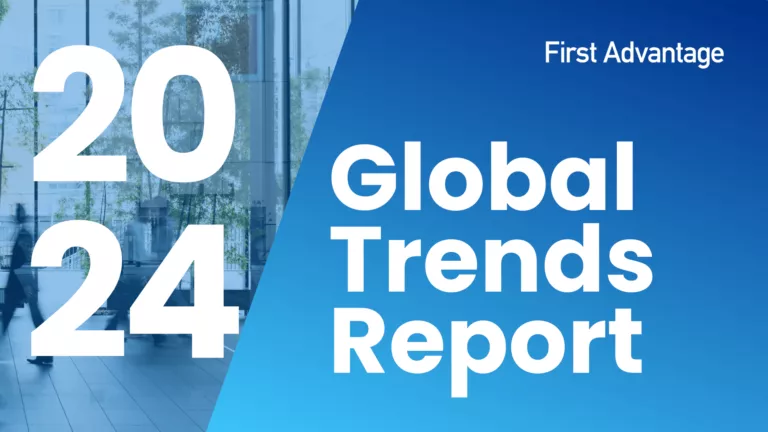Recently the Governor of Hawaii amended section 378-2.5 of the current Hawaii Revised Code (HRS) relating to the use of criminal records with the passage of SB2193. Senate Bill 2193 modified the current “look back period” from ten-years (10) for all convictions to only seven-years (7) for felony convictions and only five-years (5) for misdemeanor convictions. The effective date for this law was September 15, 2020 as the law was effective upon its passage.
Under the Hawaii criminal records law, employers are only allowed to consider an individual’s conviction record IF the conviction record bears a rational relationship to the duties and responsibilities of the position. Also, employers are not allowed to consider a prospective employee’s conviction record until AFTER the prospective employee has received a conditional offer of employment.
These sections of the law did not change. The section that was amended refers to the amount of time an employer may consider criminal conviction information. The exceptions to the law are still the same.
Specifically, the amended section of the law states:
Section 378—2.5, Hawaii Revised Statutes, is amended by amending subsections (c) and (d) to read as follows: “(c) For purposes of this section, “conviction” means an adjudication by a court of competent jurisdiction that the defendant committed a crime, not including final judgments required to be confidential pursuant to section 571-84; provided that the employer may consider the employee’s conviction record falling within a period that shall not exceed the most recent seven years for felony convictions and the most recent five years for misdemeanor convictions, excluding periods of incarceration. If the employee or prospective employee claims that the period of incarceration was less than what is shown on the employee’s or prospective employee’s conviction record, an employer shall provide the employee or prospective employee with an opportunity to present documentary evidence of a date of release to establish a period of incarceration that is shorter than the sentence imposed for the employee’s or prospective employee’s conviction.
(d) Notwithstanding subsections (b) and (c), the requirement that inquiry into and consideration of a prospective employee’s conviction record may take place only after the individual has received a conditional job offer, and the limitation to the most recent seven—
year period for felony convictions and the most recent five-year period for misdemeanor convictions, excluding the period of incarceration, shall not apply to employers who are expressly permitted to inquire into an individual’s criminal history for employment purposes pursuant to any federal or state law other than subsection (a), including:
(1) The State or any of its branches, political subdivisions, or agencies pursuant to sections 78—2.7 and 831—3.1;
(2) The department of education pursuant to section 302A—601.5;
(3) The department of health with respect to employees, providers, or subcontractors in positions that place them in direct contact with clients when providing non-witnessed direct mental health services pursuant to section 321—171.5;
(4) The judiciary pursuant to section 571-34;
(5) The counties pursuant to section 846-2.7(b) (5), (33), (34), (35), (36), and (38);
(6) Armed security services pursuant to section 261-17(b);
(7) Providers of a developmental disabilities domiciliary home pursuant to section 321-15.2;
(8) Private schools pursuant to sections 302C-1 and 378—3(8);
(9) Financial institutions in which deposits are insured by a federal agency having jurisdiction over the financial institution pursuant to section 378—3(9);
(10) Detective agencies and security guard agencies pursuant to sections 463—6(b) and 463-8(b);
(11) Employers in the business of insurance pursuant to section 431:2—201.3;
(12) Employers of individuals or supervisors of individuals responsible for screening passengers or property under title 49 United States Code section 44901 or individuals with unescorted access to an aircraft of an air carrier or foreign carrier or in a secured area of an airport in the United States pursuant to title 49 United States Code section 44936(a);
(13) The department of human services pursuant to sections 346—97 and 352—5.5;
(14) The public library system pursuant to section 302A—601.5;
(15) The department of public safety pursuant to section 353C—5;
(16) The board of directors of a cooperative housing corporation or the manager of a cooperative housing project pursuant to section 4211—12;
(17) The board of directors of an association under chapter 514B, or the managing agent or resident manager of a condominium pursuant to section 514B-133; and
(18) The department of health pursuant to section 321—15.2.”
Link to Hawaii Criminal Records Law: Hawaii Amended SB 2193
Thank you for your business.
The foregoing information is not offered as legal advice but is instead offered for informational purposes. First Advantage Corporation is not a law firm and does not offer legal advice and this communication does not form an attorney client relationship. The foregoing information is therefore not intended as a substitute for the legal advice of a lawyer knowledgeable of the user’s individual circumstances or to provide legal advice. First Advantage Corporation makes no assurances regarding the accuracy, completeness, currency or utility of the above information. Legislative, regulatory and case law developments regularly impact on general research and this area is evolving rapidly

 京公网安备 11010502052956号
京公网安备 11010502052956号

